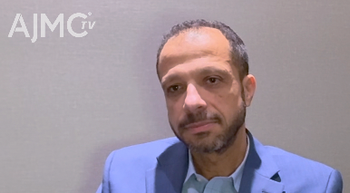
Medicaid Expansion Linked to Increased HIV Testing
An analysis of data from between 2010 and 2017 found that Medicaid expansion promoted HIV testing without increasing HIV risk behavior among nonelderly adults.
Medicaid expansion under the Affordable Care Act has been associated with a myriad of health benefits, including increased access to
An analysis of data from between 2010 and 2017 found that Medicaid expansion promoted HIV testing without increasing HIV risk behavior among nonelderly adults. The study has important implications, as early detection of HIV is crucial for ending the HIV epidemic and improving outcomes among people living with HIV.
Data came from the Behavioral Risk Factor Surveillance System and the researchers focused on those aged between 25 and 64 years who were from families with incomes under 138% of the poverty level.
The analysis showed that compared with nonexpansion states, states that expanded Medicaid experienced a significant increase of 3.22 percentage points in ever having an HIV test and an increase of 2.31 percentage points in having a test in the last 3 years. The researchers noted that the increases were smaller and less significant during the last 2 or 1 years.
However, along with the increase came disparities across race/ethnicity, age, and geographic area types. Among populations, non-Hispanic black individuals had the biggest increase. Other groups that saw the most significant increases included those aged between 35 and 44 years and between 55 and 64 years, as well as those residing in rural areas. According to the researchers, more research needs to be done to better understand the reasons behind these disparities.
“Nonexpansion states, mostly in the South, might have missed an opportunity to increase HIV test rates, which could have serious future health and financial consequences,” wrote the researchers.
With the South accounting for more than half of new HIV diagnoses, there’s a need to ramp up early detection, as well as prevention, efforts in the region as the country works toward ending the epidemic. President Trump’s
Reference
Gai Y, Marthinsen J. Medicaid expansion, HIV testing, and HIV-related risk behaviors in the United States, 2010-2017 [published online August 15, 2019]. Am J Public Health. doi:10.2105/AJPH.2019.305220.
Newsletter
Stay ahead of policy, cost, and value—subscribe to AJMC for expert insights at the intersection of clinical care and health economics.














